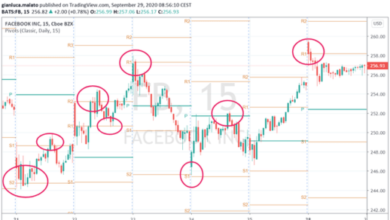Where is the Expiration Date on Roundup: Unveiling the Mystery
If you’re a gardening enthusiast or someone who loves maintaining a beautiful lawn, you’re probably familiar with Roundup, the popular herbicide used to tackle pesky weeds. While Roundup is undeniably effective in keeping your outdoor spaces weed-free, it’s important to know key details about the product, including its expiration date. In this comprehensive guide, we’ll delve into the intriguing question: “Where is the expiration date on Roundup?”
Roundup, a glyphosate-based herbicide, has become a go-to solution for managing unwanted vegetation. However, like any product, it comes with a shelf life, and knowing where to find its expiration date is crucial.
Understanding Roundup and Its Shelf Life
Before we get to the expiration date, let’s understand the concept of a product’s shelf life. Roundup’s effectiveness depends on its chemical composition, which can degrade over time. This degradation can impact the herbicide’s ability to target weeds effectively.
Decoding the Label: Finding the Expiration Date
Locating the expiration date on Roundup’s packaging is relatively simple. Typically, the date can be found on the back or bottom of the container. It is often printed on the label, near the barcode, and is clearly marked as “expiration date” or “use by date.”
Why Expiration Dates Matter
Using Roundup past its expiration date might not yield the desired results. The efficacy of the herbicide diminishes over time, leading to inadequate weed control. For optimal results, it’s recommended to use Roundup before its expiration date.
Factors Influencing Roundup’s Shelf Life
Several factors influence Roundup’s shelf life, including exposure to sunlight, extreme temperatures, and humidity. Storing Roundup in a cool, dry place can help extend its effectiveness.
Proper Storage to Extend Shelf Life
To maximize Roundup’s shelf life, store it in its original container, tightly sealed, and away from direct sunlight. Avoid leaving it in areas where temperature fluctuations are common.
Common Myths About Expired Roundup
There are myths suggesting that expired Roundup can become hazardous. While it might not be as potent, it doesn’t necessarily turn into a harmful substance. However, it’s still advisable to use herbicides within their shelf life for optimal performance.
Is Expired Roundup Safe to Use?
While using expired Roundup might not pose serious risks, it might not effectively control weeds. For your safety and the best results, it’s recommended to avoid using herbicides beyond their expiration date.
Disposal of Expired Roundup
When it’s time to dispose of expired Roundup, it’s essential to follow local guidelines for hazardous waste disposal. Pouring it down the drain or discarding it in the regular trash can harm the environment.
Alternatives to Expired Herbicides
If you find yourself with expired Roundup, there are alternatives to consider. Exploring other eco-friendly weed control methods, such as manual removal or using natural herbicides, can be effective.
DIY Weed Control Recipes
For those looking to avoid commercial herbicides altogether, DIY weed control recipes offer natural and safer options. Mixtures using household items like vinegar and dish soap can be surprisingly effective.
Roundup for Different Seasons: Spring, Summer, Fall, Winter
Different seasons demand different approaches to weed control. Roundup can be most effective when used strategically during specific times of the year.
Ensuring Roundup Effectiveness
To ensure Roundup’s effectiveness, follow the application instructions on the label meticulously. Applying too little or too much can impact results.
Environmental Impact and Sustainable Practices
Considering the environmental impact of herbicide use is crucial. Adopting sustainable gardening practices and exploring organic alternatives can contribute to a healthier ecosystem.
Conclusion
In the realm of weed control, Roundup has established itself as a reliable choice. However, understanding its expiration date is pivotal for achieving the best results. By following proper storage guidelines and adhering to recommended usage dates, you can make the most of this powerful herbicide while also prioritizing environmental responsibility.





